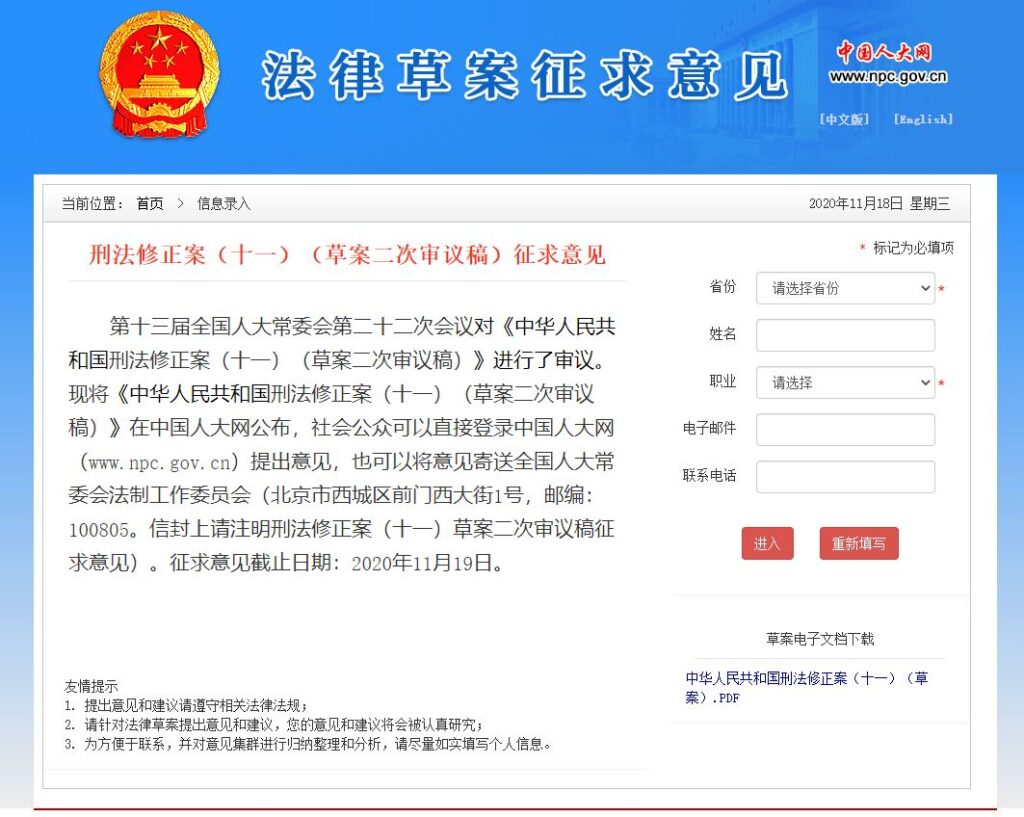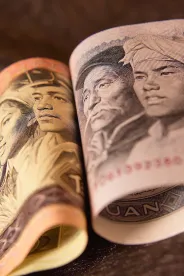On October 21, 2020, China’s National People’s Congress released a second draft of the amended criminal law. Perhaps because of the U.S. Department of Justice’s (DOJ) increased enforcement of the Economic Espionage Act (EEA) targeting China as a beneficiary, the Chinese draft retains a provision for foreign-related trade secret theft from the first draft. Specifically, Article 219 will have a new paragraph, “For stealing, spying, buying, or illegally providing trade secrets to foreign institutions, organizations, or personnel, it shall be punished with imprisonment or detention for not more than five years and a fine; if the circumstances are serious, they shall be imprisoned for more than five years with fines.”

Of interest, the terms of imprisonment are more severe under this clause than for trade secret theft to benefit a domestic entity. For example, under the current law and proposed amendment, the term of imprisonment is a maximum of three years for serious crimes and ten years for particularly serious crimes. In contrast, under the proposed provision, if the beneficiary is a foreign entity, the term of imprisonment is a maximum of 5 years unless the circumstances are serious, in which case 5 years in the minimum with no maximum. Accordingly, for example only, a Nokia employee might be punished more severely for stealing trade secrets from ZTE than a ZTE employee might be punished for stealing trade secrets from Nokia.
Regarding the EEA, the DOJ explains, “the EEA contains two separate provisions that criminalize the theft or misappropriation of trade secrets. The first provision, codified at 18 U.S.C. § 1831, is directed towards foreign economic espionage and requires that the theft of the trade secret be done to benefit a foreign government, instrumentality or agent. The second provision makes criminal the more common commercial theft of trade secrets, regardless of who benefits. 18 U.S.C. § 1832.”
In a study by Andrew Chongseh Kim, in 34% of all DOJ prosecutions of EAA cases, the nation of the benefiting entity was China. However, this percentage has significantly increased since President Trump’s election. Per the DOJ, since 2018, 80% of prosecutions for economic espionage allege conduct that would benefit the Chinese state. This, combined with statements by the White House and others, may have encouraged China to draft a provision targeting foreign entities. For example, note that the draft of the criminal law potentially targets foreigners by not only criminalizing the theft of trade secrets (presumably by Chinese nationals) but also the purchase of stolen trade secrets (by foreign nationals).
However, Mark Cohen, former U.S. IP attaché in Beijing and currently at U.C. Berkeley, explains in his blog that the proposed amendment’s “structure and purpose is different from the Economic Espionage Act of 1996” and the greatest risk is actually that it may “have a further chilling effect on a range of commercial conduct by foreigners in China. It may encourage domestic litigants to search for a foreign party in otherwise domestic litigation in order to exert additional leverage on the litigant. ” I recommend a careful reading of his blog for a detailed explanation of the possible implications.
The full text of amendments can be read here: 中华人民共和国刑法修正案(十一)(草案) (1). The deadline to submit comments is November 19, 2020.



 />i
/>i

